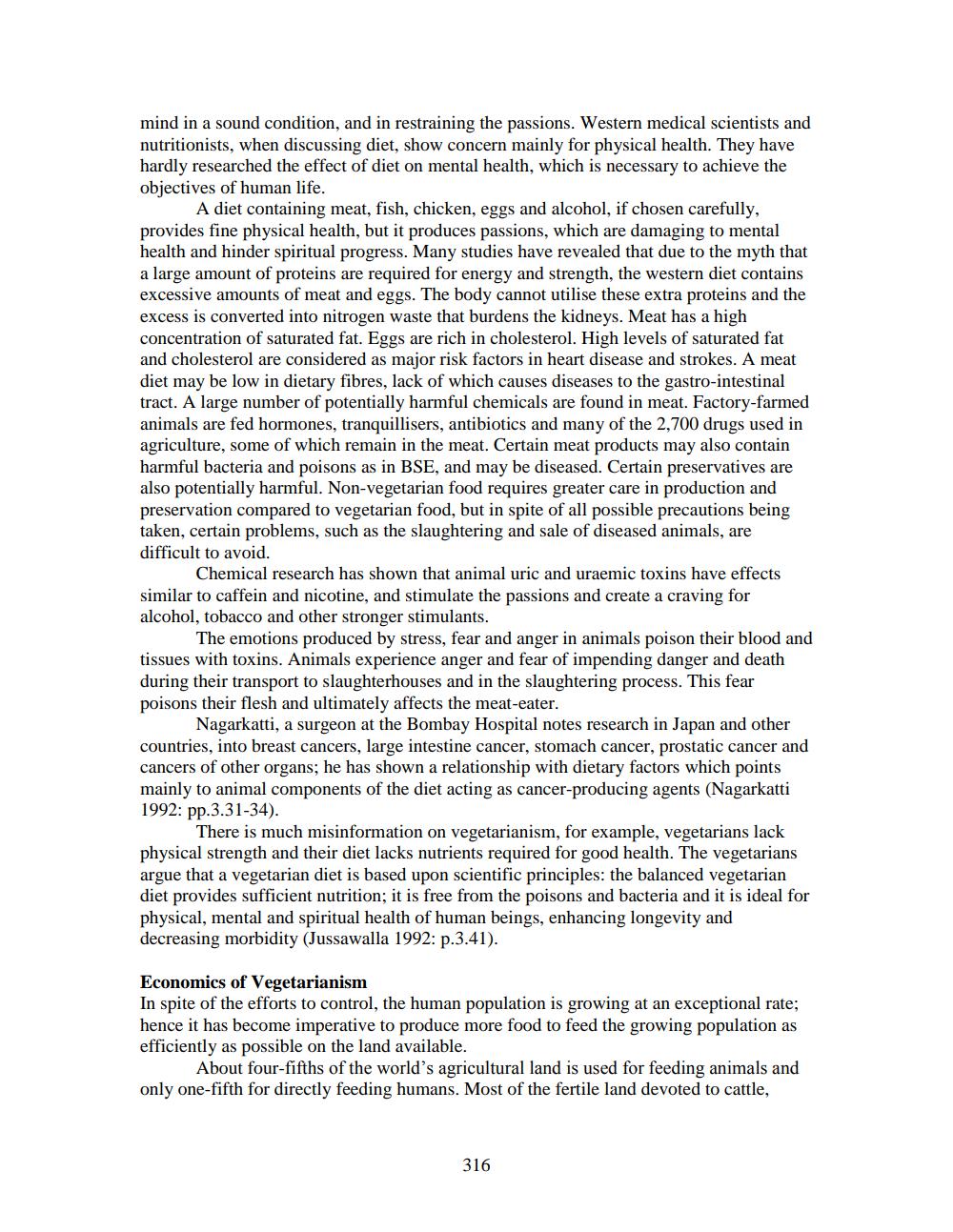________________
mind in a sound condition, and in restraining the passions. Western medical scientists and nutritionists, when discussing diet, show concern mainly for physical health. They have hardly researched the effect of diet on mental health, which is necessary to achieve the objectives of human life.
A diet containing meat, fish, chicken, eggs and alcohol, if chosen carefully, provides fine physical health, but it produces passions, which are damaging to mental health and hinder spiritual progress. Many studies have revealed that due to the myth that a large amount of proteins are required for energy and strength, the western diet contains excessive amounts of meat and eggs. The body cannot utilise these extra proteins and the excess is converted into nitrogen waste that burdens the kidneys. Meat has a high concentration of saturated fat. Eggs are rich in cholesterol. High levels of saturated fat and cholesterol are considered as major risk factors in heart disease and strokes. A meat diet may be low in dietary fibres, lack of which causes diseases to the gastro-intestinal tract. A large number of potentially harmful chemicals are found in meat. Factory-farmed animals are fed hormones, tranquillisers, antibiotics and many of the 2,700 drugs used in agriculture, some of which remain in the meat. Certain meat products may also contain harmful bacteria and poisons as in BSE, and may be diseased. Certain preservatives are also potentially harmful. Non-vegetarian food requires greater care in production and preservation compared to vegetarian food, but in spite of all possible precautions being taken, certain problems, such as the slaughtering and sale of diseased animals, are difficult to avoid.
Chemical research has shown that animal uric and uraemic toxins have effects similar to caffein and nicotine, and stimulate the passions and create a craving for alcohol, tobacco and other stronger stimulants.
The emotions produced by stress, fear and anger in animals poison their blood and tissues with toxins. Animals experience anger and fear of impending danger and death during their transport to slaughterhouses and in the slaughtering process. This fear poisons their flesh and ultimately affects the meat-eater.
Nagarkatti, a surgeon at the Bombay Hospital notes research in Japan and other countries, into breast cancers, large intestine cancer, stomach cancer, prostatic cancer and cancers of other organs; he has shown a relationship with dietary factors which points mainly to animal components of the diet acting as cancer-producing agents (Nagarkatti 1992: pp.3.31-34).
There is much misinformation on vegetarianism, for example, vegetarians lack physical strength and their diet lacks nutrients required for good health. The vegetarians argue that a vegetarian diet is based upon scientific principles: the balanced vegetarian diet provides sufficient nutrition; it is free from the poisons and bacteria and it is ideal for physical, mental and spiritual health of human beings, enhancing longevity and decreasing morbidity (Jussawalla 1992: p.3.41).
Economics of Vegetarianism
In spite of the efforts to control, the human population is growing at an exceptional rate; hence it has become imperative to produce more food to feed the growing population as efficiently as possible on the land available.
About four-fifths of the world's agricultural land is used for feeding animals and only one-fifth for directly feeding humans. Most of the fertile land devoted to cattle,
316




